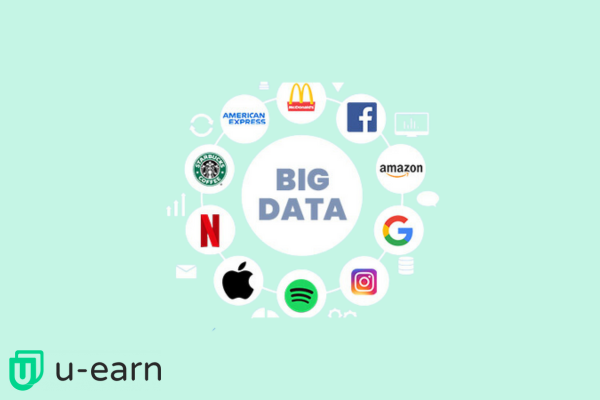The Evolution of the Personal Data Business: From Inception to a Multi-Billion Pound Empire

The rise of the internet has made the art of marketing and online advertising a lucrative and, in recent years, potentially invasive industry. The business of personal data has transformed into a thriving multi-billion pound empire in the last few years and the rise of things such as targeted advertising has meant that this shows little sign of slowing down. For consumers, the personal data industry reflects the profound changes in technology, consumer behaviour, and the monetisation of information as well as a cautionary warning of how we interact with our favourite platforms.
1. Genesis of Personal Data Business
The concept of leveraging personal data for business purposes emerged with the rise of the internet and digital technologies. Initially, data collection was modest, primarily focused on user preferences and basic demographic information. Companies sought to understand their audience to tailor products and services more effectively and ultimately reach a more interesting base of consumers.
2. Rise of Online Platforms
With the creation of social media in particular, the volume of personal data that was being generated exploded. Facebook and Instagram were some of the first platforms to make extensive use out of this data bank that users willingly shared. Vast amounts of information were delivered organically and independently, enabling businesses to create detailed profiles for targeted advertising and personalised content delivery without any real effort or input.
3. Monetisation Strategies
With rich customer profiles now available, businesses recognised the immense value of personal data. Monetisation strategies shifted from traditional models to data-driven approaches. Now, businesses knew exactly who they were reaching and could tailor specific audiences to each campaign. With this meant the rise of data broker companies, who started selling access to user data, allowing advertisers and marketers to refine their campaigns for maximum impact.
4. Rise of Tech Giants
In the meantime, tech giants played a pivotal role in the evolution of the personal data business. Companies like Google, Facebook, and Amazon became data behemoths, offering free online spaces or services in exchange for user data. The public’s lack of knowledge over their personal data and what was being done with it meant that businesses were able to create rich profiles and collect a lot of data in quick time. Powered by vast datasets, these algorithms revolutionised online advertising and user experience and has shaped the overall lifeblood of online activity for decades to come.
5. Data Brokerage Industry
The emergence of data brokerages marked a significant development. These entities specialised in aggregating, analysing, and selling vast datasets to businesses seeking insights into consumer behaviour. The data brokerage industry thrived on the exchange of information, becoming a lucrative sector in the broader data economy.
6. Privacy Concerns and Regulation
The bubble had to pop eventually. As the personal data business expanded, so did concerns about privacy and data protection. High-profile data breaches and growing awareness among users prompted regulatory responses, leading to the implementation of laws such as the GDPR and CCPA. These regulations aimed to balance the benefits of data use with the protection of individual privacy rights.
7. The Rise of AI
The personal data business continues to evolve with advancements in artificial intelligence and machine learning. As data becomes more integral to innovation, businesses are navigating a landscape where ethical considerations, transparency, and user consent play increasingly crucial roles and the management of those moral lines continues to blur.
8. The Multi-Billion Pound Empire
Today, the personal data business stands as a multi-billion pound empire, with data-driven insights shaping industries and driving economic growth. However, it is a sector facing ongoing scrutiny and calls for responsible data practices. Striking a balance between innovation, profitability, and privacy remains a central challenge for businesses in this dynamic landscape.
The journey from the inception of the personal data business to its current status as a multi-billion pound empire reflects the battle for online privacy and the inevitable battle between money and rights. Online businesses are under more scrutiny than ever before to use data in the right way and to limit the amount of data they collect but that doesn’t mean that they don’t still look for ways to stretch the limits. As this continues to unfold, the responsible and ethical use of personal data will need to be a priority and it’s on users to hold businesses accountable where possible and use more reliable businesses where possible to avoid providing easy ways out for bigger corporations.


